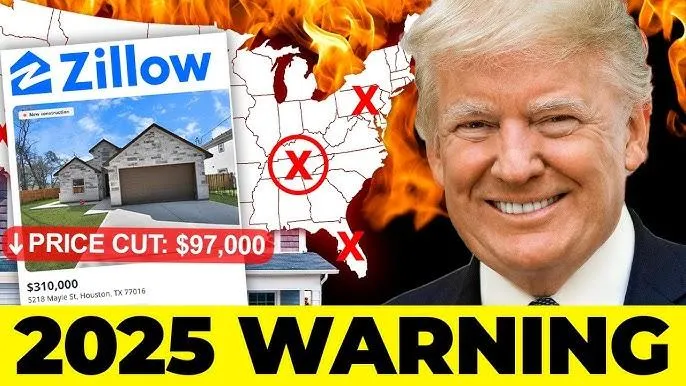Power Up Your
Content Strategy
Unlock your brand's potential with our expert content marketing solutions.
B L O G

Will real estate prices go down?
Will Real Estate Prices Go Down? A Fair Look at Housing Trends and Projections
Real estate prices have always been influenced by political, economic and technological factors. With 2025 on the horizon, the housing market is poised for potential changes. But will prices finally drop? Let’s explore the data, historical trends, and projections while considering how new presidential policies and innovations might shape the future.
A Timeline of Home Prices
Past Decades: The Steady Rise
The U.S. housing market has seen remarkable growth over the last 50 years. According to Visual Capitalist, the median home price was just $23,000 in 1970 (adjusted for inflation), climbing to $416,100 by 2023. This consistent rise reflects both economic growth and limited housing supply.
The 2008 Crash
The housing bubble of the mid-2000s drove prices to unsustainable highs, culminating in a massive crash in 2008. Prices dropped nearly 20% in some areas, according to MarketWatch. The recovery, however, was slow and steady, with prices reaching pre-recession levels by 2016.
2020s Boom
The pandemic years saw unprecedented housing demand, fueled by low interest rates and shifting preferences for remote-friendly living spaces. Prices surged nearly 40% nationwide from 2020 to 2022, with states like California and Texas seeing even sharper increases (Yahoo Finance).
2024 Snapshot: Cooling Markets
As we close out 2024, signs of a cooling market have emerged.
Yahoo Finance reports that national home sales dropped by 49% from their peak in 2022, driven by rising mortgage rates and affordability concerns.
California, often a bellwether for housing trends, has seen prices stagnate or decline slightly, according to Renee White Team's data.
Some economists predict this cooling will continue into 2025, but the situation varies regionally. Cities like San Francisco and New York may experience sharper declines due to high inventory, while smaller markets with limited supply could remain stable.
2025 Projections: The Trump vs. Harris Impact
Donald Trump’s Second Term
Under Trump’s renewed presidency, housing market policies may lean toward deregulation and tax cuts. Historically, Trump’s first term saw significant investment in luxury housing and commercial real estate (NPR). Experts like those at MarketWatch speculate that deregulation could boost high-end developments, but affordability concerns might worsen if supply constraints aren't addressed.
What Could’ve Happened Under Kamala Harris?
Kamala Harris had proposed sweeping housing reforms, including increased funding for affordable housing and expanded rent assistance (Bankrate). While these policies might have eased the burden on renters, some analysts (Yahoo Finance) argue they could have inadvertently slowed new developments by increasing costs for builders.
Emerging Technologies and Their Role
While political policies influence the market, technological advancements are also reshaping real estate.
Artificial Intelligence (AI): Tools like predictive pricing models and smarter property management systems are streamlining real estate processes (Forbes).
Crypto and Blockchain: Innovations in blockchain are enabling faster, more secure transactions, potentially attracting younger investors (Perry Real Estate College).
Automation: Drones, virtual tours, and automated appraisal tools are making buying and selling homes more accessible, especially for first-time buyers.
These technologies could offset some of the challenges posed by fluctuating prices, creating opportunities for both investors and homebuyers.
A Market of Uncertainty and Opportunity
Will real estate prices go down? The answer is complex and depends on regional dynamics, economic conditions, and political influences. While 2025 may bring some price corrections, especially in overheated markets, the broader trend of rising values is unlikely to reverse entirely.
The good news? Emerging technologies and innovative solutions offer hope for a more efficient and accessible housing market. Whether prices rise or fall, the tools at our disposal will continue to transform real estate for the better.
Sources:

